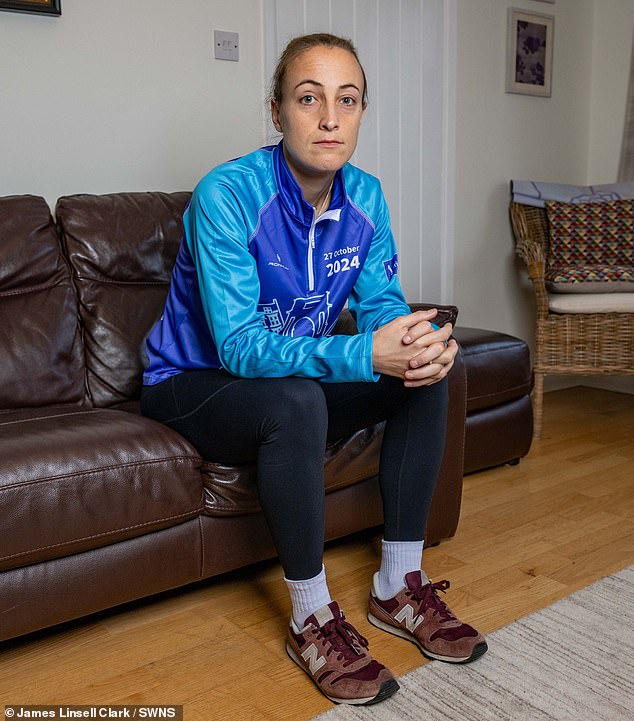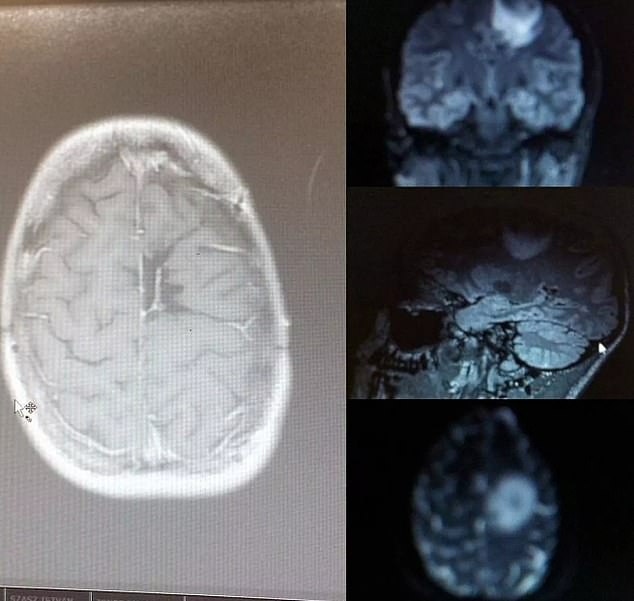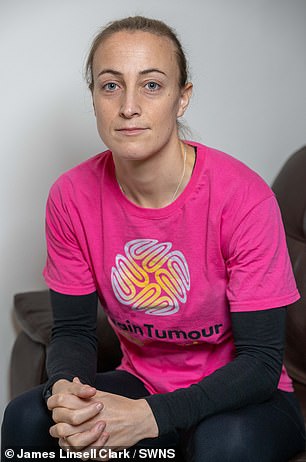Superfit footballer, 24, gets shock brain cancer diagnosis after suffering bizarre symptom
A professional footballer has revealed the strange and innocuous sign that she had a deadly brain tumour.
Amy Carr, from Hemel Hempstead in Hertfordshire, suddenly collapsed in her bedroom aged 24, after seeing a spider.
But paramedics, who were called to her home, mistakenly told the former England football player the episode was triggered by her terror of seeing the eight-legged creature.
It was only after the now 33-year-old blacked out again twice at the gym that she sought further medical attention.
An MRI scan showed she had a golf-ball sized tumour on her brain.
Despite a successful operation to remove the growth, the surgery left her unable to walk or even talk for eight days.
When she did regain her speech, the personal trainer was temporarily only able to communicate using her GCSE French she had learned years earlier.
Ms Carr, who at the time was playing professional football in Norway, is now in remission after chemotherapy, radiotherapy and extensive physiotherapy.

Amy Carr, from Hemel Hempstead in Bedfordshire, suddenly collapsed in her bedroom after seeing a spider

But paramedics, who were called to her home, mistakenly told the former England football player the episode was triggered by her terror of seeing the eight-legged creature
Recalling her terrifying ordeal, she said: 'I'd never reacted that way [the spider] to anything before.
'I knew I didn't like spiders but blacking out seemed like an extreme response — I wouldn't normally pass out just from seeing one.'
She added: 'I knew the risks that came with surgery, I was warned I could die or be left with life-changing injuries. For a week after I couldn't walk or talk.
'The first time I spoke was in response to the nurses asking me how I was.
'I replied with my GCSE grade C French of comme ci, comme ça (so-so).
'Everyone was baffled — I guess my French finally came in handy.
'The next day I was back to speaking English.'
Brain tumours are the biggest cancer killer of children and adults under 40.

It was only after the now 33-year-old blacked out again twice at the gym that she sought further medical attention. An MRI scan showed she had a golf-ball sized tumour on her brain


After her diagnosis. Ms Carr said surgeons told her she had a 5 per cent chance of dying from the tumour. The operation also had a 45 per cent chance of leaving her paralysed and 45 per chance of a full recovery, she said
At least one million Americans and 88,000 Brits are estimated to be living with a cancerous brain tumour.
In the UK, more than 12,000 people are diagnosed every year — roughly 33 every day.
But over 5,300 people lose their lives to a brain tumour each year.
They reduce life expectancy by on average 27 years — the highest of any cancer — according to The Brain Tumour Charity, with just 12 per cent of adults surviving for five years after diagnosis.
Common signs can include headaches, changes in vision, seizures, nausea and dizziness, tiredness and loss of taste and smell.
However, many symptoms can also be caused or other illnesses, which makes tumours harder to spot.
After her diagnosis. Ms Carr said surgeons told her she had a 5 per cent chance of dying from the tumour.
The operation also had a 45 per cent chance of leaving her paralysed and 45 per chance of a full recovery, she said.
She said: 'When it came to radiotherapy and chemo, nothing could prepare me from its brutality.
'During the beginning, I vomited 27 times in two days. It got better but it was hard.'
The tumour also triggered changes to her personality and coordination, she added.
'I'm more direct now for sure and I have to think more carefully about what I say, I also get way more tired than I used to,' she said.
'I used to be able to kick and throw a ball from the goal to the halfway line, now I can't.'





















































































































































































































































































































































































